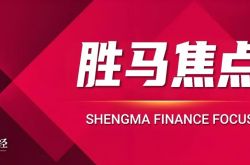TCL Embarks on AI Transformation, Navigating Technological and Market Challenges
![]() 01/16 2025
01/16 2025
![]() 694
694
Preface:
Embracing AI has emerged as a pivotal benchmark for leading the race in home appliance technology innovation.
Reports forecast that by 2024, over 70% of terminal devices in the Chinese market will integrate AI functionalities.
However, the industry's focus lies in effectively applying AI—a cornerstone technology for enterprise transformation and upgrading—within the home appliance sector, innovating AI application scenarios centered around user needs.
Author | Fang Wensan
Image Source | Network
TCL Views AI as the Fourth Growth Curve
From an enterprise development perspective, AI technology represents the key clue for TCL in exploring its [fourth growth curve].
In the TV sector, this long-standing popular product has been constrained by the industry's upgrade and replacement cycle.
In other words, TCL is once again confronted with a critical juncture in discovering its [fourth growth curve].
In the home appliance sector, TCL completed a full acquisition of Homa Appliances, a leader in the refrigerator business, this year.
Combined with TCL's released central control large model, TCL aims to establish a smart home ecosystem on par with Haier Smart Home.
Currently, the establishment of [TCL Smart Home] signifies the company's firm commitment to advancing its globalization strategy and adopting AI smart home appliances as its developmental direction.
TCL Smart Home comprises two major operating entities: Homa Refrigerators and TCL Hefei, with main products including refrigerators (including freezers) and washing machines.
Among them, the refrigerator business remains the primary revenue source, contributing over 80% of the company's income.
In terms of business models, the company primarily adopts the ODM export model and holds a clear export advantage.
In 2023, the company's refrigerator business achieved annual sales of 14.19 million units, marking a 36% year-on-year increase, and the company has maintained the top rank in China's refrigerator exports for 15 consecutive years.
While TCL Smart Home has achieved notable success in the refrigerator sector, it appears to be the company's sole significant advantage.
While peers such as Haier Smart Home and Midea Group vigorously diversify their businesses, TCL Smart Home seems to stagnate in the refrigerator sector.
Taking the market share of refrigerator categories in 2023 as an example, in the online market, the top three brands in sales are Haier, Midea, and Ronshen, with market shares of 31.69%, 15.68%, and 12.69%, respectively. TCL holds a market share of 3.33%, ranking eighth, while Homa's market share is 0.42%, ranking 20th.
In the offline market, the top three brands in sales are Haier, Casarte, and Ronshen, with market shares of 22.74%, 16.29%, and 12.38%, respectively. TCL's market share is 0.3%, ranking 15th.
In its 2023 annual report, TCL clearly stated that it will adopt AI smart home appliances as its developmental direction and leverage technology to propel further industry development.
Industrial manufacturing processes have been optimized through AI intelligent operation and AI simulation technology. In collaboration with Zhipu AI, the Xingzhi X-Intelligence platform has been upgraded to version 2.0.
In the smart home field, TCL has successfully acquired control of Homa Refrigerators through a series of strategies, renamed it [TCL Smart Home], and integrated air conditioning, refrigerators, washing machines, and other businesses to directly compete with Haier Smart Home.
In 2024, TCL achieved an economic benefit of up to 540 million yuan through the implementation of AI applications.
The core of its R&D technology strategy focuses on three major directions: display technology, intelligence, and green sustainable development.
It is building four core technology platforms—OS, IoT and cloud, AI, and imaging—to support the growth of display, home, new energy, and other businesses.
In the realm of intelligent manufacturing, Getron Technology Co., Ltd., an independent technology company strategically incubated by TCL Group, focuses on constructing an industrial Internet platform, providing an intelligent manufacturing technology product system, and overall solutions.
Getron aligns with current trends in industrial software, such as cloud nativization, intelligence, and platformization, and deploys industrial intelligence solutions centered around the three core pillars of [AI + Industrial Software + Intelligent Equipment].
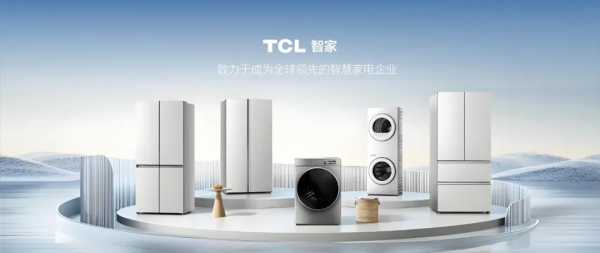
AI Application Solutions Across All Fields and Scenarios Unveiled at CES
At CES 2025, TCL showcased an extensive product lineup encompassing 25 categories and over 100 innovative technological achievements.
These products span various fields, including TVs, gaming screens, tablets, mobile phones, Thunderbird AR glasses, automotive displays, air conditioners, refrigerators, washing machines, AI robots, smart door locks, security cameras, automotive smart cockpit solutions, and smart home energy product solutions.
This lineup mirrors the content released by TCL at the 2024 Global Technology Innovation Conference (TIC2024).
However, the corresponding AI technology content highlights [TCL AI Application Solutions Across All Fields and Scenarios], integrating five innovative applications: AI intelligent operating system, AI simulation, XiaoT central control large model, AI film production, and Xingzhi X-Intelligence 2.0.
Product interaction, performance optimization, content production, scenario coordination, and production efficiency improvement are the key areas of TCL's AI strategy.
From this perspective, TCL's AI strategy bears some resemblance to Xiaomi's earlier proposed AIoT strategy.
TCL's AI strategy places greater emphasis on the overall optimization of the existing industrial chain.
This time, TCL particularly underscored AI film production and continued efforts in content creation.
In November 2024, five short films created by renowned screenwriters and directors on the TCL AI content creation platform premiered at the TCL Chinese Theatre in Hollywood.
Overseas, TCL claims to be accessing Google's AI large model Gemini and expects to launch the world's first TV equipped with Gemini AI functionality within 2025.
Domestically, AI is more evident in the direction of intelligent interaction.
Building upon existing superior performance, combined with the interactive experience of AI chatbots, this seems to epitomize TCL's current capabilities.
The heavy gene of manufacturing enterprises determines that TCL leverages more of its late-mover advantage, which also implies that in the value chain, TCL's positioning can only be in the middle to back end.
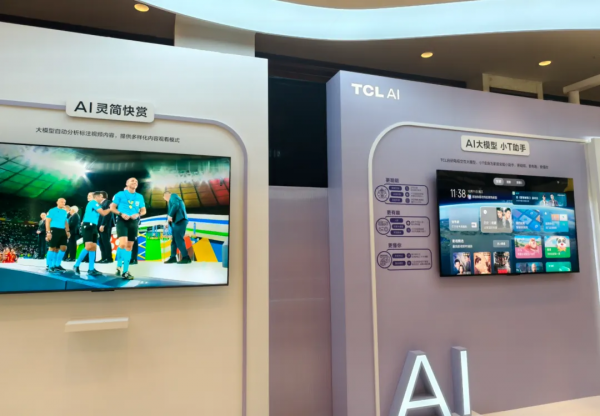
Fully Prepared for the Wave of AI Hardware
In response to the impending AI glasses market competition in 2025, TCL is poised to launch Thunderbird AR glasses priced from 1,699 yuan.
Although TCL's AR glasses do not include AI functionalities, considering TCL's successful implementation of end-side large model capabilities and the current scenario where many industry companies rapidly realize the deployment of AI large models through cooperation models, it is foreseeable that TCL will also carve a niche in the AI glasses market competition.
Overall, in the era of AI large models, TCL still aims to reignite the competition of [production capacity] in the field of AI hardware by leveraging its manufacturing advantages.
TCL's path resembles that of many Chinese manufacturing companies, starting from a main business that has reached a plateau phase of development and continually seeking new growth points.
Perhaps these new growth points will not fundamentally transform the company.
TCL's exploration in the field of AI is merely another measure for the sustained growth of its manufacturing empire. However, in the AI era, all industrial models are brimming with infinite possibilities.
Many AI hardware products exhibit popularization potential comparable to that of mobile phones.
TCL boasts a widely covered global home Internet business and a multi-layered Internet ecosystem.
It has grasped the largest and most valuable OTT user group in terms of operation. It operates its own Thunderbird large-screen Internet OTT platform in China, and its Internet business in overseas markets is also thriving.
TCL has collaborated with internet giants such as Roku, Google, and Netflix, with its business spanning multiple markets including North America and Europe.
According to data from the third-party research agency iResearch Consulting, in 2022, Thunderbird Innovation accounted for 28.4% of the market share of mainstream e-commerce platforms for consumer-grade AR glasses in China, ranking first in the industry and representing a leading domestic AR glasses enterprise.
Recently, Thunderbird Innovation released its first Thunderbird V3 AI photography glasses, equipped with an intent recognition large model customized by Alibaba Tongyi. This marks the first customized cooperation between a large model and an AI glasses hardware manufacturer in China, propelling the implementation of end-side models on AI glasses.
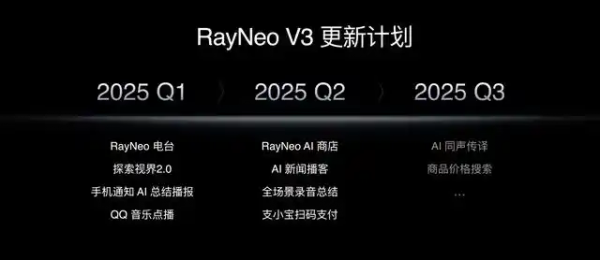
Conclusion: The AI Path Still Has a Long Way to Go
In terms of business layout, TCL Smart Home appears relatively straightforward and limited, with its main business centered on refrigerators and washing machines.
In contrast, Haier Smart Home boasts multiple brands such as Haier, Casarte, and Leader, covering various categories like refrigerators, HVAC, washing machines, kitchen and bathroom appliances, etc.
This makes TCL Smart Home lack sufficient flexibility and adaptability in market competition.
The AI intelligent operating system and AI simulation technology launched by TCL this time aim to optimize industrial production processes utilizing AI technology.
Meanwhile, in the industrial application field of AI, TCL has also upgraded Xingzhi X-Intelligence, which was launched in collaboration with Zhipu AI last year, to version 2.0.
Although TCL harbors high hopes for the AI home appliance sector and has achieved rapid growth, fundamentally, this sector seems more like a product of external condition changes.
Whether it is the wave of AI technology, overseas inflation, or domestic home appliance replacement policies, they all point to shifts in external conditions.
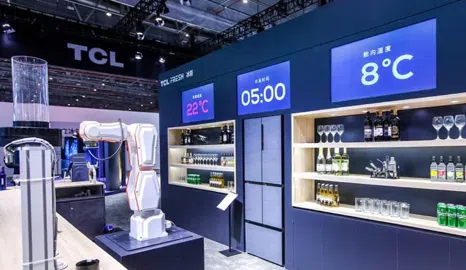
From an internal structure perspective, TCL's white goods business was not merged and renamed TCL Smart Home until 2023.
As the synergistic effect of the ecosystem has yet to fully emerge, it can be said that the chemical reaction has not been fully completed.
However, on the whole, TCL's current AI applications have not yet demonstrated sufficient innovation, and many of its functions and application directions have become industry-wide trends.
The cost of AI home appliances increases due to technology embedding. If they cannot accurately target the mid to high-end market, reasonably price, and balance cost and selling price, they may easily fall into the dilemma of being "well-received but not popular," making it challenging to recover early-stage R&D investment and impeding the process of industrial upgrading.
In terms of the competitive landscape, technology giants and home appliance giants have heavily deployed AIoT.
Midea, Haier, and others have been deeply entrenched in the field of home appliance intelligence for many years, boasting a huge user base and a mature ecosystem.
Xiaomi and Huawei have leveraged their brand, technology, and full-link ecosystem advantages to cross-border enter the market, extending from mobile phones and communications to whole-house intelligence.
TCL must strive in product differentiation, ecosystem openness, and user experience optimization to break through the impression of traditional home appliance brands and stand out amidst emerging AI brands.
Any slight negligence may cause it to be submerged in the fierce competition of AIoT, turning its AI transformation into a bubble and falling into the [bottleneck] of industrial upgrading.
Some Reference Materials: Tech News: "TCL Bets on AI, a Carnival of Conceptual Hype", Qian Tu Lao Zhou: "TCL's Li Dongsheng Bets on AI for Strategic Layout", Business Tao Tongyan: "TCL in the Global Technology Wave: How to Respond to Technological Innovation and Market Challenges?", Securities Star: "TCL Smart Home: The Road to AI Smart Home Appliance Development is Long and Arduous", Guangzhui Intelligence: "Li Dongsheng Does Not Want to Lie Down, TCL is Also Betting on AI", InfoQ Digital Jingwei: "TCL Industry Promotes Digital and Intelligent Transformation: Not Only Outputs Products, but Also Focuses on Capability Enhancement"







